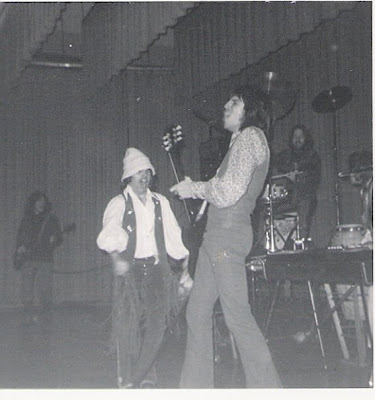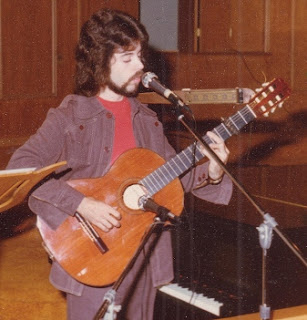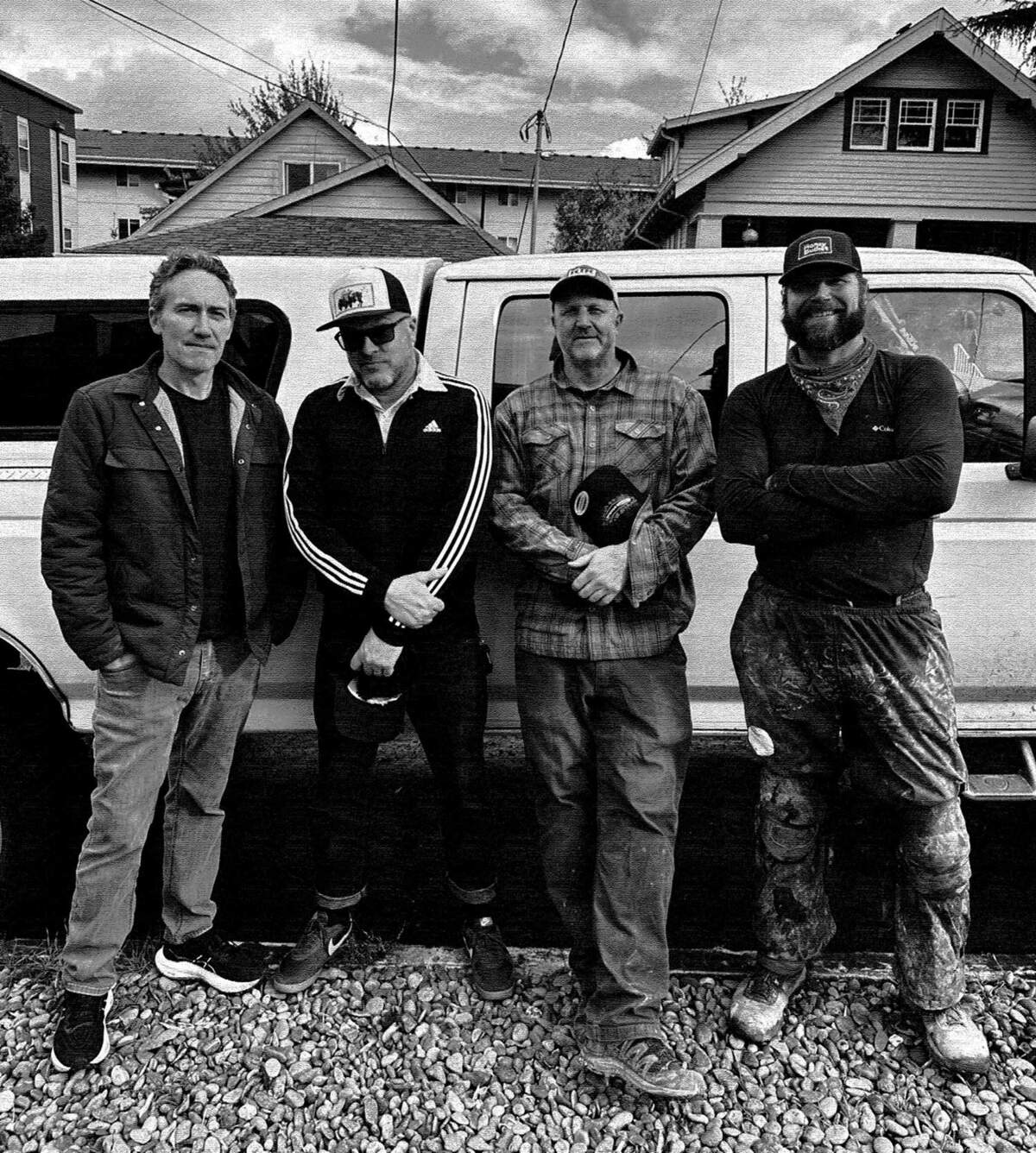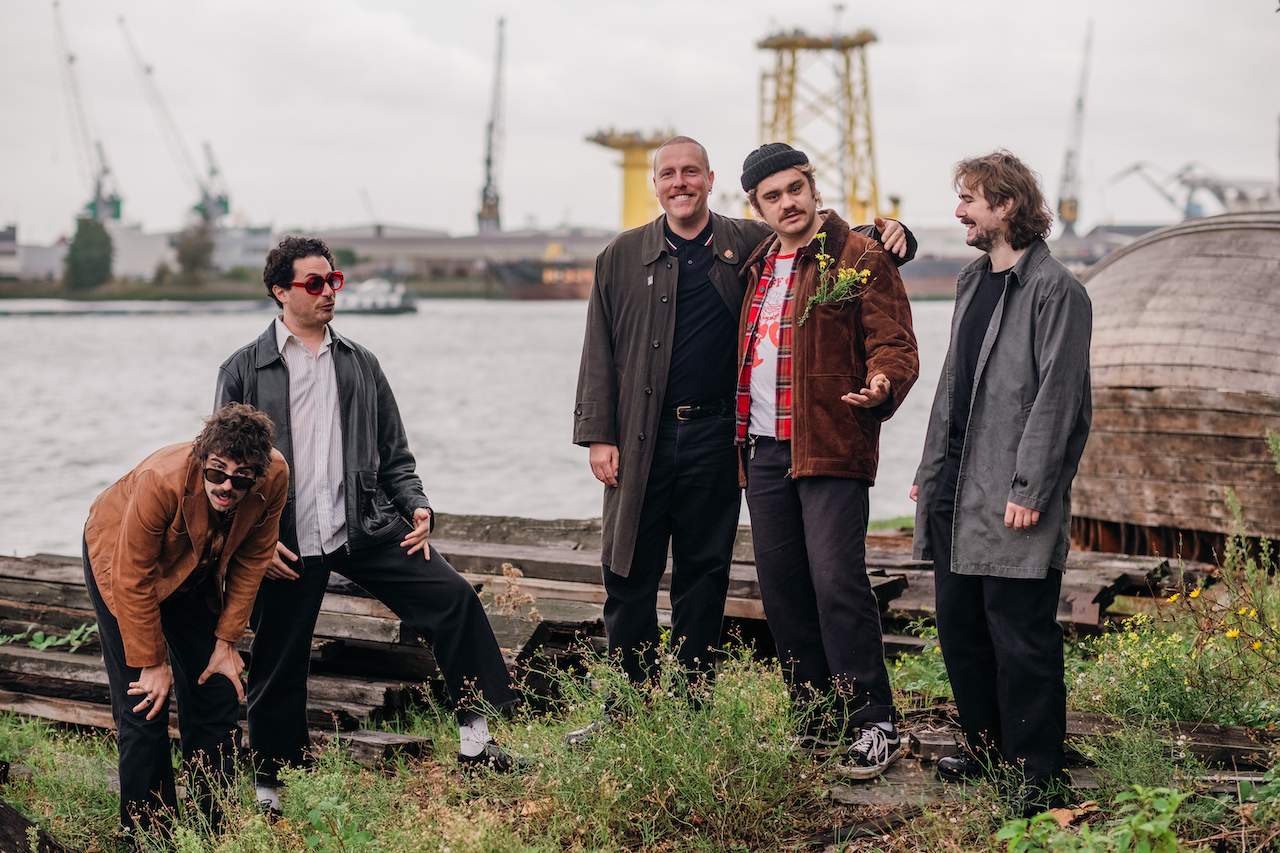Earthen Vessel interview
I was searching for band members for a very long time. Finally we got in touch with members of Earthen Vessel. Here’s their story for the very first time.
Childhood and early influences?
Ed Englerth: One of my earliest influences was with my baby sitter Susan House, who told me rock music was cool. But when she gave me a copy of “White Sport Coat and a Pink Carnation” by Pat Boone, I was disappointed. My mom had an album by an early female jazz singer, but I don’t remember the singer’s name, that may have been because my mom wouldn’t let me listen to it, and later on in life swears it never existed. When my cousin Gene Englerth was in high school he was in a band called the Badmons. Gene played keyboards and sax and I thought he was cool so I wanted to get into a band too.
I liked the bass players Tim Borgert (Vanilla Fudge) and Lee Dorman (Iron Butterfly). I liked the Dave Clark Five for catchy hooks, before I even knew what hooks were. I like the Beatles and the way they continued to change their sound and songwriting. The music of The Rolling Stones, Bob Dylan, Jefferson Airplane, Hendrix, Chicago Transit Authority (later shorted to Chicago), Blood Sweat & Tears, Johnny Winter, Janis Joplin, and Miles Davis all called my name. Davis’ ‘Bitches Brew’ album in particular was very influential. I tried to absorb a lot of stuff from all these styles.
I ordered my first bass from what was then known as Allied Radio (Shack). It came with a little amp that if you talked very loud, you’d drowned it out. This was during the summer of 1968, between 8th and 9th grade. At first I didn’t know how a ‘payment plan’ would work, because I signed up by filling out a form in a sales catalog and sending it in the mail. When I told my folks that I’d joined a band and was going to play bass, they said ‘that’s nice’ and wanted to know where I was getting the bass, I told them I’d ordered it through the mail. They didn’t believe me until it showed up later that summer. My dad helped me get an amp that was capable of being used and a couple of 15” speakers, I still don’t know from where. Seems like it was a old Bogen amplifier, and I think the speakers were Jensen. My dad helped build speaker cabinets and a box for the amp. He was into electronics and built me a fuzz tone that I had to turn on and off with a switch on the amp. He came up with the design and there wasn’t another one like it.
The first member lineup that I remember was John Bowles on guitar, Rick Taylor on vocals, Larry Mix on guitar, and me on bass. I don’t know if drummer John Burkey played with us then, but I know before too long the band became a trio of John Bowels on guitar and vocals, John Burkey on drums, and me on bass. This lasted about 3 years. My senior year I worked with a band consisting of Martin Vipond on keys, Jeff Bennet on drums, Jim Benchschooter on guitar, Deb Biang on vocals and me on bass. By this time my rig was all the way up to a semi-acoustic Conrad bass and a used Sears Silvertone bass amp.
After graduation, Martin and I heard Earthen Vessel was looking for a keyboard player and a bass player. Although offered the gig, Martin decided to be a life guard at Mackinaw Island. I joined Earthen Vessel.
I got a used Fender Mustang bass for graduation and bought a West speaker cabinet with two 15” speakers and a black Custom power head.
David Caudill: One of my uncles was a country musician, playing in bars in Detroit, and that made me want a guitar by age 10-12… I have a brother four years older than I am, and he played guitar and taught me; by the time I was 16, I was playing a lot of country and folk music, and I joined a Christian folk group affiliated with the local chapter of Youth for Christ – so in my last two years of high school, I was performing. Compared to today, there was not a lot of Christian music in popular/rock genres; it was this soft folky sound.
Greg Miller: Like most of my era, the Beatles were a starting point, soon followed by the likes of Santana, Led Zeppelin, Cream/Clapton, and Hendrix.
Bob Sperlazoo: In my early years, I listened to lots of pop radio. Most of my influences were Peter, Paul & Mary and Simon & Garfunkel and the like – I started out as a folkie and moved into rock later.
Linda Moore Johnson: Earlier influences, church music, classical mostly.
Were you in any bands before forming Earthen Vessel?
Ed Englerth: Only basement recordings. No releases
David Caudill: The group I was with in high school did not record, but when I was in college, the group had re-organized and I did play bass on its Christian folk music album.
Greg Miller: Just high school bands, played mainly school dances. No releases.
Bob Sperlazoo: Yeah, a number of “folk groups” before I started soloing (later with some backup musicians). No releases.
What was the scene back then in Lansing, Michigan?
Ed Englerth: Even though it was only an hour from where I lived it seemed like everywhere else to me… either I assumed it was like what I was hearing while seeming a million miles away. We had a couple of places that had bands come in and play. The Note at Gun Lake seemed more teeny bop to me, but The Cobra in Hastings had a lot of cool bands come through: Alice Cooper, The Frost, SRC, Rationals, The Amboy Dukes, Universe, Wizkids, and many more.
David Caudill: I got involved with Campus Crusade for Christ early in college at Michigan State, and played at some of its evangelical events. After my first two-tri-mesters at MSU, I went to London in March of 1970 to work with Campus Crusdae as an intern; that summer I worked at Campus Crusade’s headquarters in San Bernardino, California (I drove a school bus for kids at a summer camp). That summer of 1970, there were already Jesus festivals and Jesus music in southern California – it was not really hard rock, but at least there were Christian rock groups, and I thought that was a great gig.
Greg Miller: If memory serves, it was mostly folky stuff. Christian rock was in its infancy and most church people treated it like leprosy. But Larry Norman, Love Song, and a few others began to change that. I don’t remember too many venues outside of certain churches that would host musical events, usually Southern Gospel.
Bob Sperlazzo: Sorry, I came from Chicago.
Linda Moore Johnson: I moved into Lansing so was not from there. Can’t comment on the scene except for the coffeehouse. Always pretty well packed on weekends to hear EV.
The original name of the band was The Rare Ones, but you decided to change it to Earthen Vessel.
Ed Englerth: The band was already together when I met them. My friend and I talked to them after one of their gigs one night about how we dug what they were doing and that we were interested in doing something like that. We got invited to audition for the band.
David Caudill: When I returned to MSU in the fall of 1970, I played some solo gigs at Church youth group events, and one of them was at a Nazarene church. After that performance, the church’s youth/music director, Leon Morton, told me he was forming a Christian rock group, and he had everything except a lead guitarist. I was game, and I met and played with John Sprunger on bass, Ken Fitch on keyboard, Eddie on drums, and Sharon Keel as the lead vocalist… it worked well, and we called ourselves The Rare Ones until all of us in the band said that the name was corny… I don’t know who thought of Earthen Vessel, but that was obviously a biblical reference to humanity capable of holding God inside. We had our own coffee shop in a basement, the Catacombs, and we played there almost nightly until we went on the road.
Linda Moore Johnson: Don’t know about the name change. I came up there to visit Sharon. We were roomies in college.
You had your own bus and amplifiers provided by West Laboratories. Would you like to share some stories that happened on the road?
Ed Englerth: I remember the speaker cabinets were really heavy but it held up to the rigors of being hauled all over the place.
We would normally spread all the amps out, but there was one gig that had a really small stage and I got the idea to just stack them as tall as they’d go. It was funny because even though I’m 6’ 5” I almost had to jump to change any of the settings on the power heads that sat on the very top of the all the amplifiers.
I remember one of the first gigs I played with them they had the members of the band on separate risers or stages. It looked cool, but Dave on guitar was so far away and I could hardly hear him. Back then the only sound that went through the PA was vocals. Our bass and guitar amps had to supply all the sound for the concert and thus were really loud. Thankfully the drummer was close enough and loud enough to hear so we all just tried to stay with Eddie on drums and at least from those out front that could hear all of the instruments it came off really well.
I remember Earthen Vessel going to a two – day music festival in Indiana. Half were declaring the good new of Jesus and the other half of were the main stream rockers of the day. I remember one guy was crying cause he’d just dropped his bag of a ‘powdered substance’ all over the ground and the wind was blowing it away and he was too fried to know what to do. I’m not sure who the promoters were, but it seemed that they had invited the ‘Christian’ bands trying to capitalize on what they perceived as the “Jesus Movement.”
Another organization brought us in and put the musical amps and drums on a trailer and pulled up to various state park locations and other public venues and parks. Then we’d get up on the trailer and start playing which would cause the crowds to gather.
I also remember playing events and having the audience screaming and crying as if the Beatles had just shown up. We also played at the Ichthus Festival in Wilmore, Kentucky. We closed one night and Andre Crouch closed the other night.
David Caudill: The bus was old, but decked out with a back bedroom for Sharon, 4 bunks in the middle for the guys, and a living area up front. The model was common for gospel quartets, and Leon Morton had been in a gospel quartet. John Sprunger worked at West Labs, and talked West into providing our equipment for the publicity (“Powered by West” on all our posters). We toured a lot in the Midwest, giving anti-drug assemblies in high school during the day, and then getting a venue that night – we would announce our evening concert at the assembly. The main thing I remember from the road is that we packed up every night, ate breakfast at 1-2 am, slept all night in the bus, arrived in another town, set up our equipment, etc., on and on, every day, and I felt like I had no life – no social life, no Friday night dates, just playing so that other people had a good time. It really is quite a sacrifice of life and time that you can never get back. I understand all the rock stars who say that the road is very life-negating, boring, etc.
Greg Miller: Before my time. By the time I joined, we were still using some West gear – PA and guitar and bass cabinets. There was a West guitar head, but I used my own Fender Twin instead – it was louder…
Linda Moore Johnson: All I know is that the bus barely got them where they were going most times, the bunkbeds were framed 2x4s unfinished, and reminds me of the buses in M.A.S.H.
How do you remember some of the rehearsals?
Ed Englerth: I wasn’t on the album, so I unfortunately don’t have any memory of those sessions. I do remember hearing that the studio wasn’t used to having loud bands record there. They set up like all the other recording sessions that they were used to doing, ignoring warnings from the Earthen Vessel people. When the band hit the first note, headphone came flying off the engineers’ head because it was so loud.
John Sprunger.
David Caudill: We practiced every day in the Catacombs, and I’ll just say that it was very easy to play with such great musicians… they were all studio – level musicians, which means everybody is in tune and in rhythm all the time, with little effort. Nowadays I play banjo on Wednesday mornings at a coffee shop where bluegrass musicians hang out, and I’m always amazed that 6-7 musicians who do not know each other can just say, “Eight more miles to Louisville, key of G”, and then everyone is perfect and it sounds like a highly organized performance. That’s what it was like with Earthen Vessel… we could write a song in an afternoon, and perform new material that night.
Bob Sperlazzo: After several personnel changes, we finally got the band ready to play.
Linda Moore Johnson: It was recorded in TN I believe. Was not privy to those trips.
By summer of 1971 you had enough material to do an album. Where did you record it and how many copies were made?
Ed Englerth: It was recorded in Nashville, TN. I don’t know how many pressing were made.
David Caudill: We went to Nashville, can’t recall the studio, and “Colonel” Dave Mathis produced the record in 11-12 hours… he was critical of my inability to keep my guitar tuned; some songs took an hour, some less, some more, and it was a great experience.
Who did the cover artwork?
Ed Englerth: The location where the band was standing was at a place near Grand Ledge, MI. called the Ledges.
David Caudill: I don’t recall; we just went out to some scenic spot outside Lansing where we could find a large rock to stand in front of.
Concert memories…
Ed Englerth: I remember playing on a float in a parade and the people that had brought us in had some of their kids on the float to hold amplifiers and cymbals from falling over and/or off the float. They’d had given the kids cotton for their ears to protect their hearing. As soon as we got underway, most of them took the cotton out.
David Caudill: I recall an outdoor rock concert in Indiana, sunny day, great stage, and it felt like Woodstock… I also recall a Christian rock festival in Kentucky, where we were going to play that evening, and we were obviously the hardest rock band there… so in the afternoon we did a sound check, while people were just milling around waiting for the show, and we just blasted the break from “Life Everlasting”, 30 seconds, total sound wall, and got everyone’s attention. We tried to have the typical wall of amps, very loud, lots of distortion, precursor to Christian heavy metal.
Greg Miller: We played a lot of school assemblies. And yeah, we were nothing if not loud and powerful. But the kids would flock around us. It took some time to get used to signing autographs and being treated like rock stars. No doubt the highlight was being one of the featured bands and Ichthus 1973, at the time the largest Christian music festival on the planet. To this day I count it as one of the greatest experiences of my life. We played to over 5,000 people one night, and large crowds throughout the weekend. The weather was heavenly, the Spirit was moving, and it was a pure honor and pleasure to be there. Christian rock was really starting to happen and it was awesome to be part of that movement.
Bob Sperlazzo: One of our best was at Ichthus in Louisville, KY; we also did some other festivals and high school assemblies/concerts.
Linda Moore Johnson: Yes, they were loud. They had HUGE speakers. One fellow, I think his name was Larry, was kind of their roadie. He could pick up one of those speakers by himself and carry it to wherever. The first time I saw that I was next to Dave. We both had our jaws drop and just looked at each other. Quite a feat of strength.
What was the songwriting process in the band?
Ed Englerth: I didn’t write any of the songs, but I liked playing them. Oh wait, I did write an instrumental or two. Forgot the names I think one might have called “People”.
David Caudill: “Life Everlasting”. Great song, with Sharon sounding like Jefferson Airplane… the opening finger-picked guitar had a special set-up with only the high/thin strings, so the top three strings were the same as the bottom three strings.
“You Can”. My guitar work sounds unsophisticated by today’s standards, but I heard an early Black Sabbath jam the other day and I realized that the style was very much what was around in 1970.
“Let Jesus Bring You Back”, “I’ve Been Walkin”, “Coming Home” all of our songs were collaborations, with 5 people sitting around and adding things, including lyrics and chord details and so forth.
“Get High”. This is a cover; we did not write this, but it’s a great song.
Greg Miller: I don’t remember the actual songs all that well. Some were originals, some had been done by the earlier version of the band, and some were songs that were written by others that we made our own. Sorry, none of those song titles ring a bell. All I can remember now is “Plastic Jesus”, “Hole In My Soul”, and a Christian-ized version of “Gimme Shelter”.
Bob Sperlazzo:
I Used to Sing the Blues
Plastic Jesus
I’ve Got a Hole in My Soul
Why Don’t You Look into Jesus?
etc. (don’t remember)
…And festivals?
Ed Englerth: Ichthus was the only name I remember. All the original members played Ichthus in 1972 and the reformed version played Ichthus in 1973. With Earthen Vessel as the last band on Friday night, then playing again on Saturday during the day, and Andre Crouch was the last band on Saturday night.
Greg Miller: Ichthus ’73 is the only one I remember now.
The Ichthus symbol.
Bob Sperlazzo: Ichthus; another one with Andre Crouch; etc.
How did you get involved with Jesus Movement?
Ed Englerth: The Jesus Movement as I saw it described in the press was more of a West Coast (read California) thing. When Vessel went to Europe it was in association with the Hollywood Free paper. It was mostly just people that were trying to find the answers to all those questions like, who am I, why am I here, is there a God… etc. The person of Jesus Christ was making an impact on people’s lives and supplying the best explanation for those questions. Many people in the traditional churches were perceived as the establishment. Some of the people in the Jesus movement referred to the traditional church people as ‘the chosen frozen’. The traditional church had tried to define God in a very narrow way, segmenting life into parts like, their work life, their family life, their recreational life etc. and yet when we read the Bible we found God was interested in all areas of our lives, we are whole people and He is interested in us as a whole person. Francis Schaeffer’s first few books were a big influence on my early growth in understanding about Jesus. And I remember seeing Dave Caudill reading Schaeffer and then turned me on to him.
Bob Sperlazzo: I was there from the beginning (even before) and watched it grow. It was an exciting time; many of the salvations brought us leaders even to today.
What happened next after the release of your album?
Ed Englerth: The record did not sell as well as the band had hoped. The gruelling wear of the road and the album’s failure, as well as the various college and career plans, coaxed the band members into disbanding by the summer of 1972. Earthen Vessel was reformed by Leon Morton. Ed Englerth – bass and vocals, Dan Vigus – drums and vibes, Greg Miller – guitar, Bob Sperlazzo – guitar and lead vocal. I (Ed) played in both the original Earthen Vessel (after John Sprunger left) travelling with that version of the band to several gigs. After the second group was together, they stayed together for about one year doing gigs around the Midwest and disbanded as the money evaporated and members of the band followed other interests.
David Caudill: We just kept touring, and the pinnacle was the 8-day tour of Sweden… the first night in the park in Stockholm we were so loud that the police shut us down… we finished the tour doing unplugged folk versions of our songs! Not long after that, I wanted to go back to school, and I thought (really!) that Christian rock would soon fade away – the long hair and loud amps and jumping around on stage was to me a fad… So I was really wrong, and I realize that every time I listen to contemporary Christian rock…
Greg Miller: Ed, you would know this better than I would. That LP was fairly old news by the time I joined. And the band only survived about a year after I joined.
What occupied your life later on and are you still in contact with other members?
Ed Englerth: I’ve tried to stay in touch with the people in Vessel, but other than Greg Miller who is still in this part of the universe, it hasn’t been until the Internet and Facebook etc.. that I’ve been able to get a hold of them.
I worked in another early ‘Jesus Music’ band called Aslan, which was based out of Spring Arbor, MI. Also while in Spring Arbor I worked with a jazz fusion band called ‘East Wind Exit’ (aka ‘Projective Razz’) which started as an independent study at the college and then stayed together for awhile, after class ended. A couple years later I worked in a house band at a bar in Alpena, MI with Donny Hartman (The Frost). When Donny left to work with Robin Robbins (Bob Seger’s Silver Bullet Band) on Robins new band. I moved to Hastings, MI and have been here ever since. I worked with various bands and spent some time with SC Studios, in Lansing, which is where I recorded some of my Linear Action Band material as well as became friends with Armada. I produced a project for Armada, and when their bass player moved on, I joined Armada, recording ‘Black and White’ and other material that has been released in various formats. I also did some early work with Xalt, and wrote the song, “God in a Box” which was on their first project. I also wrote a song called “Your Love Matters” that Herbie Russ recorded on one of his projects.
I started doing about as many solo shows as I was doing with Linear Action Band so I lay that band name aside and for the last several years have gone by The Ed Englerth Band when playing ‘band’ gigs.
David Caudill: I stay in touch with John and Ken, but not Eddie or Sharon… I finished college, went into the air force to fly in the back seat of F-4 fighter jets, then went to grad school in Amsterdam for my Ph.D. in philosophy, then to law school, after which I practiced law in San Diego and Austin before becoming a law professor in 1989.
Greg Miller: Through the 70s and 80s, I got very involved with both worship music and various Christian performance bands. The coffeehouse era was in full swing, and we played dozens of them. I was the main person responsible for booking bands at the Masters House in Lansing, and my bands played there frequently. I was also involved in concert promotion, responsible for bringing to Lansing performers such as Phil Keaggy, Lamb, Honeytree, Second Chapter of Acts, both Talbot brothers, Wayne Watson, Michael Card, and many others. The only EV member I’m in any kind of contact with is Ed, though I did talk to Bob Sperlazzo on the phone and exchanged a few emails about 10 years ago.
Bob Sperlazzo: Travelled with Free Fare for 1 year (all over the US and Canada); lots more soloing; got married and both performed/ministered; led lots of worship; ran a number of coffee houses, concert series and festivals; helped many others get up-and-running; etc.
Ed has a new band called Ed Englerth Band. Would you like to share a few words about it?
Ed Englerth: I play ‘Moody Intelligent Folk Jazz Blues’ and just released my 9th solo recording called “Hope Dream Sigh” (My wife Panda appears on the cover.) on Blue Side Down Studios Recordings. www.BlueSideDownStudios.com which is available on iTunes, CD Baby etc.. where you can find my other most recent CDs called ‘D.I.A.L Business’ and ‘Restless Ghost’
I’m working with three excellent musicians. Don Cheeseman on bass, Alan Dunst on drums, and Bob Hartig on sax.
What are some of your future plans, Ed?
Ed Englerth: Play, sing, write, record, repeat.
How about others?
Greg Miller: About 25 years ago, I came off the road after being with Heirborn for about six years. During those six years, we played hundreds of concerts in a dozen states and recorded three albums. At that time, the Lord called me to dedicate my musical life to worship music, something I had long done but considered a distant second. I wrestled with that calling for about two weeks in prayer, then submitted to the Lord. This began an amazing process where this music filled my soul like no other and He poured His Spirit out upon me whenever I entered into worship. From that day, I have remained very active in various worship ministries, primarily with my church. But I’m about to join a worship band that has branched out into playing concerts, something I’m very excited about. They have several albums done and 25 of their songs are available on iTunes. I have come to believe that worship music is a hyper-powerful tool for reaching souls, as well as moving those in the Kingdom from average to excellent.
Bob Sperlazzo: Lots of irons in the fire (but not musically).
Thank you for being part of our magazine. Last word is yours.
Ed Englerth: I’ve been very fortunate that I’ve been able to work with many fine artists and would like to thank them for letting me be a small part of their life. Ray White (Frank Zappa), Kenny Meeks (Sixpence None The Richer), Joe English (Paul McCartney & Wings), Robin Robbins (Bob Seger), John Lawry (Petra), Jan Krist, Ben Brown, Jim Cole, Aracely, Jim Earp, Scott Roley, Dave Perkins, Donny Hartman (The Frost), Xalt, Armada, Aslan, Harvey Jet (Black Oak Arkansas), and of course Earthen Vessel.
Bob Sperlazzo: Very little has changed in the “industry,” except that there’s a whole lot less of Jesus and a lot more rock-and-roll.
Ed Englerth: for more information check out: http://earthenvesselband.wordpress.com/
Here’s the list of those interviewed and their relationship to Earthen Vessel:
Ed Englerth, played in both versions of Earthen Vessel.
David Caudill, played in the first version of Earthen Vessel.
Greg Miller, played in the second version of Earthen Vessel.
Bob Sperlazoo, in the second version of Earthen Vessel.
Linda Moore Johnson, was married to Eddie Johnson, drummer for the first version of Earthen Vessel.
Other members declined offers to participate in this interview or were unavailable for comment.
Interview made by Klemen Breznikar/2011
© Copyright http://psychedelicbaby.blogspot.com/2011
Array

















Lilly here: I traveled with the band as a solo before EV went out and knocked everybodies socks off. Actually, a lot of the photos you have are mine.
The big concert with half Christian half secular was a benefit supposedly fro Biafra. Leon didn't let me play because crazies were throwing beer bottles.
I wasn't at the album recording, but I do remember Sharon had laryngitis and by the end of the recording had sipped so much of LEon's concoction of honey and whiskey . . . well, like I said I didn't see it personally. 🙂
The Sweden tour was a turning point. I ended up going off with Duane Pedersen's group, who was the speaker, and after that moved to CA.
Seems a lifetime ago!
I worked with Col Dave Mathis at Globe Recording studio on Nashville in the late 60's. Could that have been the studio you guys were at?
The band recorded the album at Monument Studios in Nashville. TN.
From Ed Englerth
Please contact me about that studio at:
psychedelicbabyblog@gmail.com
Thanks,